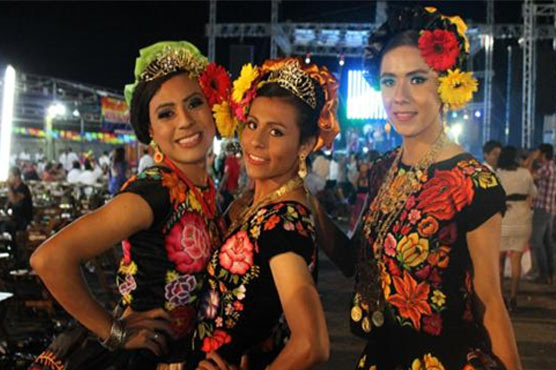Mexican town celebrates its Muxes - traditional third gender

The Spanish conquest in the 16th century and the Catholic Church snuffed out much of that tolerance.
MEXICO (Reuters) - A small town in southern Mexico saw dancing and partying late into the night at a pageant to celebrate the area’s Muxe, or third gender residents.
After a powerful earthquake snuffed out 2017’s festivities, the small town of Juchitan in the southern Mexican state of Oaxaca made up for lost time with a lively pageant where some 50 Muxe, mostly gay men of ethnic Zapotec descent, tried to outdo one another with their fabulous outfits.
This particular Muxe pageant is an annual tradition that started 44 years ago.
Mystic, a name adopted by one of the most emblematic, recognised and beloved Muxes of Juchitan, is a founding partner of the civil Muxe association called the "Intrepids."
Mystic sells jellies at the market to take care of his mother. When the sale was over, Mystic headed to the beauty salon to get ready for the pageant.
Muxes are widely-accepted in the area despite an ingrained Roman Catholic heritage and known for their dedication to family, especially for taking care of parents as other siblings move out to start their own families.
Anthropologists say the tradition of blurring genders among Mexico’s indigenous population is centuries old, but has been revived in recent decades due to the gay pride movement.
The area around Juchitan, a laid-back town near the Pacific, also has a history of women playing leading roles in public life.
Biniza, which in the Zapotec language means rain, is one of the most prominent activists of the group "Danger seekers."
Anthropologists have found evidence of mixed gender identities across Mesoamerica, from Mayan corn and moon gods that are both male and female and Aztec priests who ritually cross dressed.
The Spanish conquest in the 16th century and the Catholic Church snuffed out much of that tolerance.

